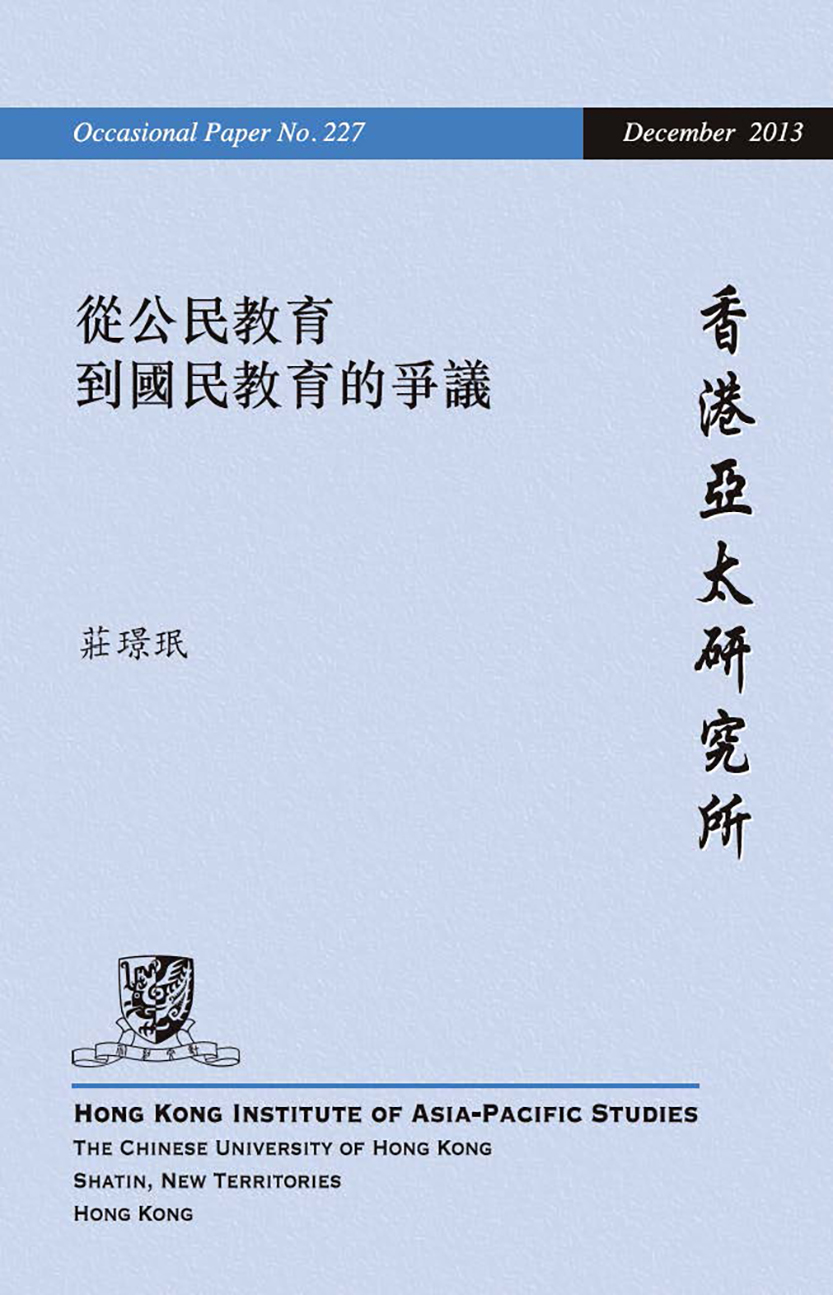HKIAPS Publications
(The Controversies from Civic Education to National Education)
By King-man CHONG
Chinese 21.5 x 14 cm/paperback/ii+29 pages/published in December 2013
ISBN 978-962-441-227-7; list price: US$2.50 (HK$15.00)

本文討論由港英年代的「公民教育」演變到特區政府提出「國民教育」當中所產生的爭議,以及相關理念的演變。自上世紀八十年代開始,香港推行「公民教育」,教育學生公民權利和義務。1996年的《學校公民教育指引》,目的是促進學校承擔公民教育的使命。至特區政府年代,教育署於1998年推出《中學課程綱要:公民教育科(中一至中三)》,建議學校於初中採用此課程。隨着增加認識中國的需要,「國情教育」開始出現,但於2001年的教育改革改稱為「德育及公民教育」,被指把公民教育非政治化和泛道德化。隨着特區的政治發展,「國民教育」被漸次加強,時任國家主席胡錦濤也於2007年訪港時提出「要重視對青少年進行國民教育」。2009–10年的《施政報告》提出「組織學生參加配合國民教育課程的內地交流活動」、2012年教育局推出《德育及國民教育科課程指引(小一至中六)》,提出國民教育着重情感和感覺,但旋即引起社會的爭議,認為屬政治洗腦,要求撤回此科,其後成功迫使政府撤回。公民教育,如何走下去?本文整理一些思考要點。
The Controversies from Civic Education to National Education
This article discusses the development of the curriculum in Hong Kong from civic education to national education, and the associated controversies and relevant concepts on citizenship. Civic education was introduced in Hong Kong in the 1980s, to promote the learning of civic rights and responsibilities. The aim of the 1996 Guidelines on Civic Education in Schools was to encourage schools to fulfil their civic mission. In 1998, the Education Department issued the Syllabuses for Secondary Schools: Civic Education (Secondary 1–3) for civic education in junior secondary schools. During the education reforms of 2001, moral and civic education was included among the four key tasks, but it was criticized as having the effect of de-politicizing and moralizing civic education. For political reasons, national education began to be emphasized, especially once the president of China, Hu Jintao, mentioned in 2007 that Hong Kong youngsters need national education. In 2012, the Education Bureau pushed ahead with the proposed Moral and National Education Curriculum Guide (Primary 1 to Secondary 6). It has met with serious misgivings from the public, who have raised allegations of brainwashing. How can civic education move forward? This article summarizes some key points for consideration.
